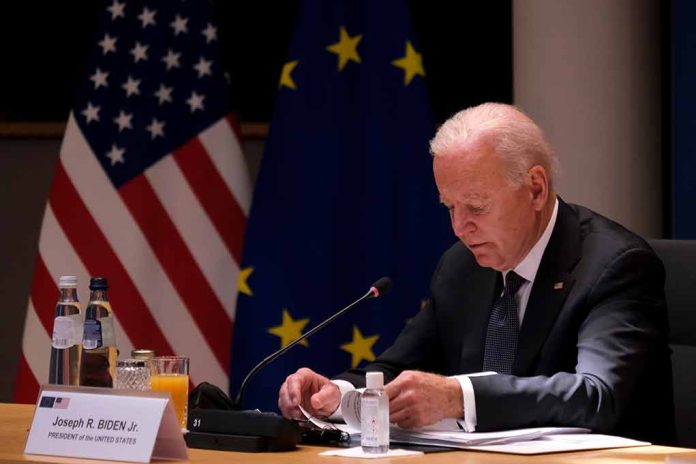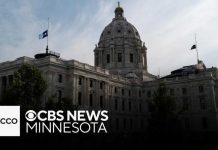
President Biden’s controversial pardons for Dr. Anthony Fauci, Gen. Mark Milley, and others involved in the January 6 inquiry have ignited a fierce debate about presidential power and political legacies.
Key Takeaways
- Biden issued pre-emptive pardons for Fauci, Milley, and Jan. 6 committee members.
- The move aims to protect against potential “revenge” by the incoming Trump administration.
- These pardons set a precedent for potentially broader use of clemency by future presidents.
- The inclusion of Hunter Biden in the pardons has sparked particular controversy.
- Critics argue this action damages Biden’s legacy and undermines constitutional norms.
Biden’s Controversial Pardon Decision
In a move that has sent shockwaves through Washington, President Joe Biden has issued a series of pre-emptive pardons in the final hours of his presidency. The pardons cover a range of high-profile individuals, including Dr. Anthony Fauci, retired Gen. Mark Milley, and members of the House committee that investigated the January 6 Capitol attack. This unprecedented use of presidential clemency has sparked intense debate about the nature of executive power and its implications for future administrations.
The pardons extend to members of the House committee that investigated the January 6 Capitol riot, as well as police officers who testified about the events. Condemnation of Biden’s actions began almost immediately.
“The guy who claimed he would ‘protect norms’ continues to bulldoze them and the Constitution until the bitter end. Biden truly is one of the worst Presidents in American history and will only be remembered as the guy between Trump’s two terms,” Senator Eric Schmitt (R-Mo) wrote on X.
Biden’s legacy is pure corruption. https://t.co/ZX4iscH6tb
— Dave Smith (@ComicDaveSmith) January 20, 2025
Implications for Key Figures
Dr. Anthony Fauci, who faced significant criticism for his role in COVID-19 policies, expressed relief at the pardon. Gen. Mark Milley, who had publicly criticized Trump, also voiced his gratitude. Both men emphasized the personal toll of facing potential investigations and prosecutions.
“I really truly appreciate the action President Biden has taken today on my behalf. I have committed no crime … and there are no possible grounds for any allegation or threat of criminal investigation or prosecution of me,” said Fauci.
The pardons also extend to members and staff of the January 6 committee, as well as police officers who testified about the Capitol attack. This broad scope and preemptive nature of clemency has raised concerns about the potential for future presidents to use pardons as a tool to shield political allies from legal consequences.
Controversy and Criticism
Biden’s decision has not been without its critics. Taylor Budowich, Trump’s incoming deputy chief of staff for communications and personnel, said that Biden’s pardons “will go down as the greatest attack on America’s justice system in history.” “With the stroke of a pen, he unilaterally shielded a group of political cronies from the scales of justice. This is yet another dangerous and unreversible erosion of American norms,” Budowich posted to X.
The pardons have also sparked debate about the nature of guilt and innocence in relation to presidential clemency. Biden has emphasized that these pardons should not be seen as an admission of wrongdoing by any of the individuals involved. However, questions remain about whether accepting a pardon might imply guilt in some legal contexts.
“The issuance of these pardons should not be mistaken as an acknowledgment that any individual engaged in any wrongdoing, nor should acceptance be misconstrued as an admission of guilt for any offense. Our nation owes these public servants a debt of gratitude for their tireless commitment to our country,” President Biden said.
Looking Ahead
As the dust settles on this unprecedented use of presidential pardons, many are left wondering about the long-term implications for American democracy. There are concerns that this could set a dangerous precedent, encouraging future presidents to use pardons more liberally to protect political allies. With Trump promising to pardon many involved in the January 6 attack when he returns to office, the stage seems set for pardons to become an increasingly contentious political tool.
As the nation grapples with these complex issues, one thing is clear: Biden’s pardon decision will likely be debated for years to come, serving as a critical moment in the ongoing discussion about the limits of presidential power and the nature of political accountability in America.









